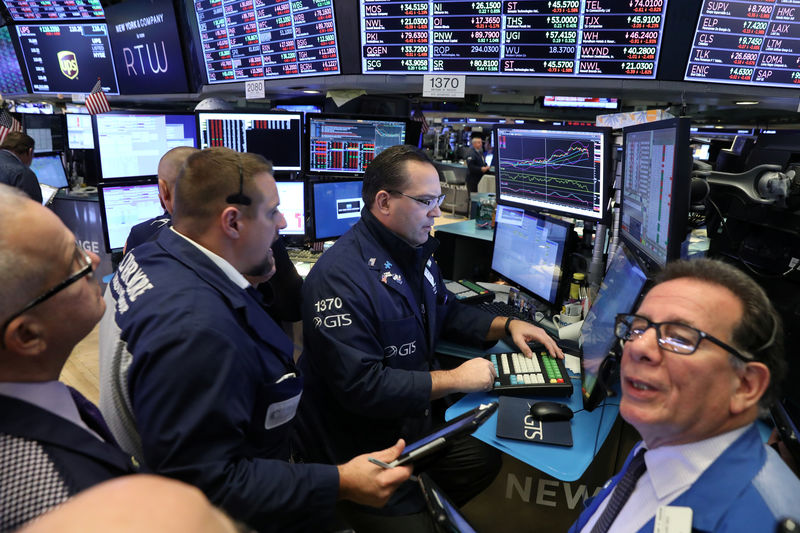By Medha Singh
(Reuters) - The S&P 500 hit a three-week low on Tuesday, as weak earnings from retailers including Target and Kohl's as well as a fall in energy shares added to worries for Wall Street, which is still reeling from a selloff in technology stocks.
Target Corp shares (N:TGT) slumped 10.28 percent after the retailer's third-quarter profit missed analysts' estimates as investments in its online business, higher wages and price cuts hurt margins.
Department store operator Kohl's Corp (N:KSS) shed 9.42 percent after its full-year profit forecast fell below expectations.
Warnings from retailers prompted caution ahead of the holiday season, increasing selling pressure on equities as investors fret about a slowdown in global growth, peaking corporate earnings and rising interest rates.
Apple Inc (O:AAPL) shares fell 3.80 percent amid concerns about slowing demand for iPhones. The stock, which has led the market through much of its bull run, is at its lowest level since early May.
The tech-heavy Nasdaq fell to its lowest level in more than seven months and is now down about 14.6 percent from its record closing high in late August.
"Market has clearly run into some headwinds. We've got rising rates, strong dollar, concerns over tariffs between U.S. and China and we've got the oil selloff," said Christopher Larkin, senior vice president of trading at E-Trade Financial in New Jersey.
"There are a lot of things working against the market right now ... We're seeing a couple of stocks, which are pretty popular specifically with retail investors, under quite a bit of pressure."
Home improvement chain Lowe's Cos Inc (N:LOW) fell 4.76 percent after it unveiled further plans of restructuring in the face of worse-than-expected comparable sales numbers.
TJX Cos Inc (N:TJX) slipped 3.4 percent after the off-price retailer's holiday-quarter earnings forecast fell largely below estimates. Smaller rival Ross Stores (O:ROST) fell 6.94 percent as its fourth-quarter forecast for same-store sales came below analysts' expectations.
The S&P 500 retailing index <.SPXRT> lost 1.83 percent, falling for eight straight sessions.
At 13:05 a.m. EDT the Dow Jones Industrial Average (DJI) was down 455.04 points, or 1.82 percent, at 24,562.40, the S&P 500 (SPX) was down 40.17 points, or 1.49 percent, at 2,650.56 and the Nasdaq Composite (IXIC) was down 91.79 points, or 1.31 percent, at 6,936.69.
However, the three indexes were off their session lows.
The FANG group eased off their earlier losses, while the Philadelphia SE semiconductor (SOX) index clawed back losses to edge 0.1 percent higher.
Signs of slowing demand for Apple's iPhones have wide-ranging implications for technology and internet companies.
Should Apple's loss hold through the day, its shares would have lost more than 20 percent of their value, or around $250 billion, since closing at a record high on October 3.
Goldman Sachs (NYSE:GS) trimmed its price target on Apple for the second time in just over a week, saying the balance of price and features in the new iPhone XR may not have been well-received by users outside of the United States.
The S&P energy index (SPNY) tumbled 2.92 percent as oil prices plunged another 5 percent amid concerns about rising global supplies.
"We're in a holiday week so there are fewer traders than normal and that's a problem. Because whatever direction the markets go in, it's exacerbated," said Kim Forrest, senior portfolio manager at Fort Pitt Capital Group in Pittsburgh.
Declining issues outnumbered advancers for a 5.57-to-1 ratio on the NYSE. Declining issues outnumbered advancers for a 2.73-to-1 ratio on the Nasdaq.

The S&P index recorded 20 new 52-week highs and 41 new lows, while the Nasdaq recorded eight new highs and 244 new lows.